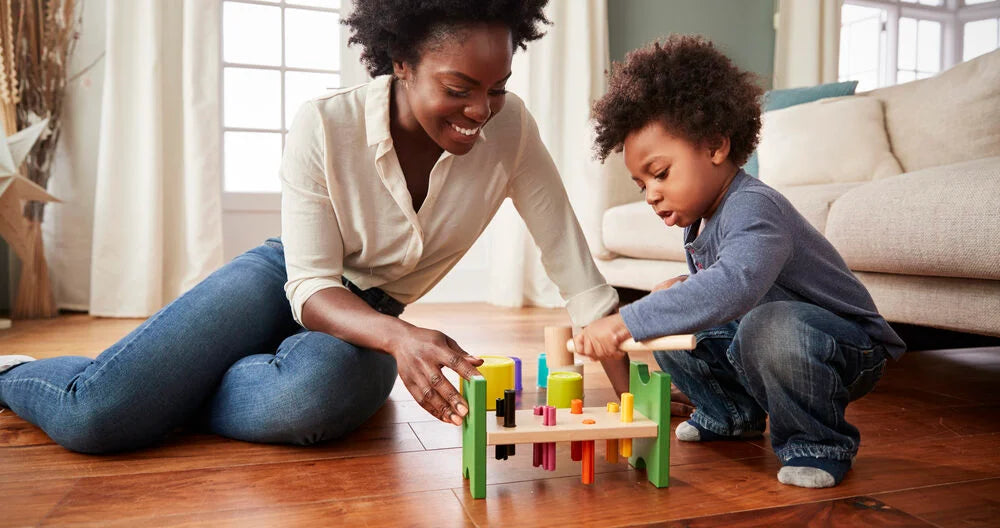
Easy Toddler Learning Activities for Home
Raising a toddler is both exciting and challenging. At this stage, little ones are eager to explore, curious about everything, and constantly learning from their surroundings. The outside world is very interesting for them to explore, full of colors, sounds and movements. But you can not be outside all the time right? The good news? You don’t need fancy tools or a structured classroom to help them grow—your home is already full of opportunities for learning and play. With a bit of creativity, everyday moments can become simple, fun, and educational activities that nurture their development. You can show your child that your home is more than enough for them to feel safe, but that it also holds so many opportunities for adventures and new things to discover.
1. Sorting and Matching Games
Toddlers love order, even if it doesn’t always seem that way. They love to figure out forms and colors, as they are very sensitive to them. Give them a small basket of socks, blocks, or toy animals and ask them to sort them by color, size, or shape. Sorting teaches early math skills like classification and pattern recognition, while also boosting attention to detail. It also teaches patience and calms them down.
Tip: Keep it short and sweet—5 to 10 minutes is plenty for a toddler’s attention span.
2. Kitchen Play and Measuring
Cooking can be an exciting learning lab for toddlers. Let them help pour, stir, or measure dry ingredients. Talk through what you’re doing: “This is one cup of flour,” or “Let’s stir until it’s smooth.” Not only does this expose them to math and science concepts, but it also strengthens motor skills and language. By including them in your work, they will see what fulfillment feels like from a very young age. Offer safe, non-sharp utensils of course and keep hot surfaces off limits.
3. Story Time with a Twist
Reading aloud is one of the best learning activities you can do at home. To make it interactive, pause to ask questions like, “What do you think will happen next?” or “Can you point to the dog in the picture?” This sparks imagination, builds vocabulary, and improves comprehension. You can also see how your child prefers its stories : dramatic, adventurous or heroic. Why not all of them? Act out parts of the story together—toddlers love pretending! Who knows, you may have an Oscar winner in your house without knowing?
4. Creative Art Stations
Keep a small basket of crayons, washable markers, stickers, and scrap paper within reach. Art doesn’t need to be structured—scribbling, stamping, or finger painting are all fantastic ways for toddlers to express themselves while improving hand-eye coordination. Don’t worry about the end product; focus on the process and fun. Abstract artists need their mess to create, so enjoy an artist's work.
5. Sensory Bins
Fill a shallow box or container with safe materials like dry pasta, rice, cotton balls, or water beads (under close supervision). Hide small toys inside for them to discover. Sensory play engages curiosity, develops fine motor skills, and calms busy minds. Seasonal bins are a hit—think autumn leaves, holiday ornaments, or seashells in summer. Let your toddler feel like an explorer or even an archeologist, searching treasures and secrets.
6. Music and Movement
Toddlers love rhythm and sound. Play music and encourage dancing, clapping, or using simple instruments like shakers or drums. Music boosts memory, coordination, and language skills, while movement helps with balance and physical development. Turn cleanup time into a “cleanup dance” with a favorite song. Teach them some dance moves or even easy TikTok dances to prepare them for those parties when they grow up.
7. Everyday Math Moments
Counting doesn’t have to come from flashcards. Count steps as you walk upstairs, apples as you put them in a bowl, or cars as they pass outside. These real-life opportunities help toddlers understand that numbers are part of their world and to also notice details and be aware of surroundings,
Learning at home doesn’t need to be complicated or expensive. Toddlers thrive on simple when their favorite people are included, hands-on activities that let them explore, move, and play. By weaving learning into everyday moments, you’re not just teaching them skills—you’re nurturing curiosity, creativity, and a love for discovery that will last a lifetime. These activities will also form part of their character and interests latter, so make it fun and unforgettable.








